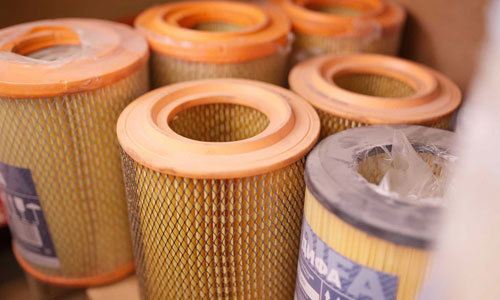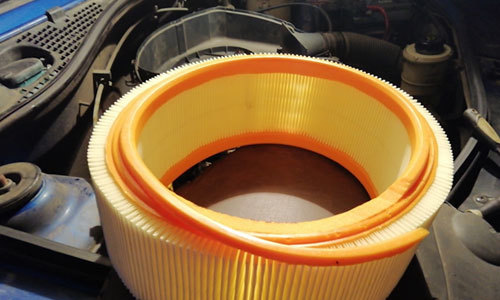Essential Guide to Choosing an Air Filter for Your Excavator: Maximize Performance and Longevity
2025-06-25
Essential Guide to Choosing an Air Filter for Your Excavator
Table of Contents
Introduction to Excavator Air Filters
The Importance of Quality Air Filters
Types of Air Filters for Excavators
Paper Air Filters
Foam Air Filters
Synthetic Air Filters
Key Factors to Consider When Choosing Air Filters
Size and C
Essential Guide to Choosing an Air Filter for Your Excavator
Table of Contents
- Introduction to Excavator Air Filters
- The Importance of Quality Air Filters
- Types of Air Filters for Excavators
- Key Factors to Consider When Choosing Air Filters
- Maintenance Tips for Excavator Air Filters
- How to Properly Install Air Filters
- Frequently Asked Questions
- Conclusion
Introduction to Excavator Air Filters
When it comes to excavators, the air filter plays a crucial role in ensuring optimal engine performance. It acts as a barrier, protecting the engine from dirt, dust, and other foreign contaminants that can cause significant damage. This guide provides essential insights into the importance of air filters, the types available, and critical considerations for selecting the right filter for your excavator.
The Importance of Quality Air Filters
Air filters are not merely optional components; they are essential for maintaining the efficiency and longevity of your excavator. Here are a few reasons why investing in a high-quality air filter is vital:
1. Protects Engine Components
A reliable air filter prevents harmful particles from entering the engine, which can lead to wear and tear on engine components. This protection translates into lower maintenance costs and extended engine life.
2. Enhances Fuel Efficiency
Clean air filters allow for better airflow to the engine, resulting in improved combustion. This efficiency reduces fuel consumption, saving you money in the long run.
3. Reduces Emissions
An efficient air filter can also minimize harmful emissions. By ensuring complete combustion, you contribute to environmental sustainability while complying with regulations.
Types of Air Filters for Excavators
Understanding the different types of air filters available is critical in making an informed decision. Below are the primary options you can consider:
Paper Air Filters
Paper air filters are the most commonly used type due to their affordability and effectiveness. They are designed to capture both large and small particles, making them suitable for varied working conditions. However, they must be replaced regularly to maintain their efficiency.
Foam Air Filters
Foam filters provide excellent filtration and are often reusable. They can be cleaned and oiled, making them a cost-effective option for those who want to reduce waste. However, they may not be as efficient as paper filters in extremely dusty conditions.
Synthetic Air Filters
Synthetic air filters offer superior filtration capabilities and longer service life compared to traditional options. They are designed to withstand high temperatures and are more durable, making them ideal for heavy-duty applications.
Key Factors to Consider When Choosing Air Filters
Selecting the right air filter involves several considerations that can significantly influence performance. Below are the key factors you should evaluate:
Size and Compatibility
The size of the air filter must match the specifications of your excavator. Always consult the owner's manual or manufacturer guidelines to ensure compatibility. An improperly sized filter can lead to leaks or reduced efficiency.
Efficiency Ratings
Air filters come with efficiency ratings that indicate their ability to capture particles of specific sizes. Look for filters with a high efficiency rating, such as those that meet the ISO 5011 standard, to ensure optimal performance.
Environmental Conditions
Consider the working environment of your excavator. If you're operating in dusty or harsh conditions, a filter designed specifically for such environments will provide better protection. For example, synthetic filters could be more beneficial in extreme conditions due to their durability.
Maintenance Tips for Excavator Air Filters
Regular maintenance is crucial for ensuring the longevity and effectiveness of your air filters. Here are some actionable tips to keep in mind:
1. Regular Inspection
Check your air filter regularly for dirt accumulation. A clogged filter can reduce engine performance and fuel efficiency.
2. Clean or Replace as Needed
Depending on the type of air filter, cleaning or replacing it at recommended intervals is essential. For foam filters, a simple wash and re-oiling may suffice, while paper filters will generally need replacement.
3. Monitor Engine Performance
Keep an eye on your excavator’s performance. A sudden drop in fuel efficiency or power may indicate that the air filter needs attention.
How to Properly Install Air Filters
Proper installation is key to maximizing the performance of your air filter. Follow these steps for an effective installation process:
1. Gather Necessary Tools
Before you start, ensure you have all required tools, including screwdrivers and any fittings specific to your excavator model.
2. Remove the Old Filter
Carefully detach the old air filter, taking care not to let any debris fall into the intake.
3. Install the New Filter
Position the new air filter correctly and secure it according to the manufacturer's guidelines. Make sure there are no gaps that could allow unfiltered air to enter the engine.
4. Test the System
After installation, run the excavator for a few minutes to ensure everything is functioning correctly. Check for any unusual sounds or warning lights.
Frequently Asked Questions
1. How often should I change my excavator's air filter?
We recommend changing your excavator's air filter every 500 to 1,000 operating hours or as specified by the manufacturer.
2. Can I clean a paper air filter?
No, paper air filters are designed for one-time use. Attempting to clean them may damage their structure.
3. What are the signs of a clogged air filter?
Signs include reduced engine performance, decreased fuel efficiency, and unusual engine noises.
4. Are synthetic air filters worth the investment?
Yes, synthetic air filters offer superior filtration and longer service life, making them a cost-effective choice in the long run.
5. How do environmental conditions affect air filter selection?
Dusty or harsh conditions may require more robust filters, such as synthetic options, to ensure maximum protection for the engine.
Conclusion
Choosing the right air filter for your excavator is essential for maintaining engine performance and longevity. By understanding the types of filters available, considering key factors, and implementing proper maintenance practices, we can significantly enhance the efficiency and durability of our equipment. Make informed decisions based on your specific needs, and don’t hesitate to consult experts when necessary. With the right air filter in place, your excavator will remain in peak condition for many years to come.
Key words:
Related News
How often does the air filter change?
The air filter element is mainly used to block impurities such as dust and sand in the air.
2024-05-22
What are the car filters? When do car filters need maintenance?
As an oil filter, it is generally replaced together with the oil during maintenance.
2024-05-22
The choice of filter manufacturers should be considered comprehensively
Before choosing a filter manufacturer, you must understand the relevant background of the manufacturer.
2024-05-22








